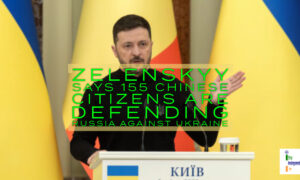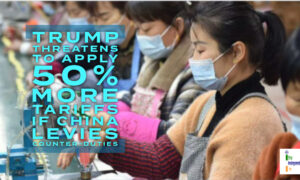
The Programme aims at bolstering Palestinian recovery, resilience and long-term state-building efforts
In a landmark move during the first-ever High-Level Political Dialogue between the European Union (E.U.) and the Palestinian Authority, the European Commission has unveiled a proposed multiannual Comprehensive Support Programme worth up to € 1.6 billion, aimed at bolstering Palestinian recovery, resilience and long-term state-building efforts.
With this Programme, the E.U. reiterates its unwavering support for the Palestinian people and its commitment to a lasting and sustainable peace based on the Two-State solution. It will cover the period from 2025 to 2027. It is structured around three pillars, including support for services for the Palestinian people, support for recovery and stabilization of the West Bank and in Gaza and support for the private sector.
Taking it to X, the Vice-President of the European Commission – Kaja Kallas tweeted,
We are stepping up our support to the Palestinian people.
— Kaja Kallas (@kajakallas) April 14, 2025
€1.6 billion until 2027 will help stabilise the West Bank and Gaza.
The EU will invest in essential infrastructure while delivering humanitarian aid and support for refugees.
We are a long-standing partner for the PA.
Under support to services for Palestinian people, a proposed € 620 million in grants will go directly to the Palestinian Authority (PA) to support critical public services and administrative needs. This direct budgetary support will be closely tied to progress on a series of reforms outlined in a jointly developed Reform Matrix, signed in November 2024. These include improvements in fiscal management, democratic governance, infrastructure development, and private sector growth. All disbursements will be channeled through the E.U.’s PEGASE mechanism, which ensures robust oversight and transparency concerning the final use of funds.
For support to recovery and stabilization of the West Bank and in Gaza, a further € 576 million in grants will be allocated to recovery-focused initiatives in the West Bank and Gaza, contingent on conditions on the ground. Projects will target key infrastructure sectors such as water, energy, and public utilities. This pillar also includes annual funding of € 82 million to the United Nations Relief and Works Agency for Palestine Refugees in the Near East (UNRWA), enabling it to maintain essential services to Palestinian refugees both in the occupied territories and the broader region. The E.U. reaffirmed UNRWA’s critical dual role as both a humanitarian and development actor.
It will also support the private sector. The European Investment Bank (EIB) is expected to provide up to € 400 million in new loans to stimulate growth in the Palestinian private sector, subject to approval by the EIB’s governing bodies. The aim is to foster entrepreneurship, employment, and economic resilience in Palestinian communities.
In addition, the European Commission will launch a dedicated Palestine Donor Platform. The Platform will offer a forum for the Palestinian Authority to present the implementation of its Reform Agenda and will ensure full transparency in the implementation of the Programme. This Platform will also facilitate discussions on key elements for future engagement on Gaza and coordinate international efforts for its recovery and reconstruction, once conditions allow.
On July 19, 2024, the E.U. and the Palestinian Authority signed a Letter of Intent that set out a strategy for addressing the critical budgetary and fiscal situation of the Palestinian Authority and the Palestinian economy. The Letter of Intent put forward a two-step approach. An emergency financial support of € 400 million to the Palestinian Authority that has been disbursed between July 2024 and February 2025. The second step was the E.U. Comprehensive Programme for Palestine 2025-2027, which the European Commission has unveiled.
The E.U. is the biggest provider of external assistance to the Palestinians, with a bilateral allocation amounting to, indicatively, € 1.36 billion for 2021-2024, of which over € 1.043 billion have already been allocated.







